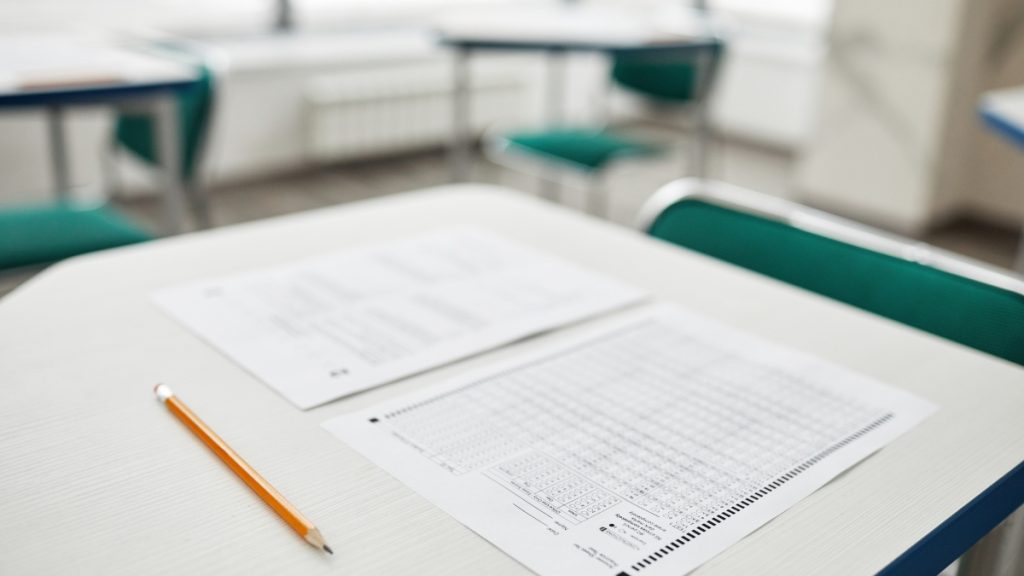Exam time can be tricky for everyone, but if you have a disability or learning difficulty, it can feel even more overwhelming. The pressure, the time limits, and even the exam room itself can make it harder to show what you really know. Luckily, there are ways to make the experience a bit easier – whether through formal supports or by using some helpful strategies on your own.
This article will walk you through what you can ask for if you have a diagnosis, and what you can do to help yourself even if you don’t. You’ll also find some useful tips to boost your confidence and manage exam stress if you’re a student with disability or learning difficulty.
Formal exam accommodations: What you can ask for
Formal exam accommodations are designed to level the playing field and ensure that everyone has an equal chance to show what they know. They’re not about giving an unfair advantage, but about recognising that everyone’s needs are different. Here’s a list of some common accommodations that you can request in an exam if you have a disability or learning difficulty:
- Extended time: If you process information more slowly or need longer to write your answers, you might be able to get additional time to complete your exam. Typically, this could mean 25% to 50% extra time, but it varies based on individual needs.
- Separate, quiet room: For those who are easily distracted or find it hard to concentrate in a crowded room, sitting your exam in a quieter space can make a big difference.
- Use of technology: This could include using a computer, word processor, or speech-to-text software, which can be especially helpful if writing by hand is difficult. There are lots of different Text-To-Speech tools around, and your school may have rules or restrictions around which ones you can use – for example, if you’re in New Zealand you need to use a tool that’s approved by the NZQA, or use their own provided tool.
- Reader or scribe: A reader can read the questions aloud to you, while a scribe can write down your answers as you dictate them.
- Modified exam papers: For students who find it easier to read larger text, simplified language, or different-coloured paper, these modifications can help you understand questions more clearly.
- Rest breaks: Taking short breaks during the exam can be helpful if you experience fatigue or anxiety. This gives you time to reset and refocus without feeling rushed.
How to request formal accommodations
If you think formal accommodations could help you, the first step is to have a chat with your school’s learning support team, counsellors, or teachers. You’ll usually need a diagnosis or assessment from a healthcare professional to apply, as this helps ensure your request is handled properly.
Once you’ve made your request, remember that it might take some time to process. It’s best to start early – don’t leave it until just before exam time. Your teachers and support staff are there to help you through the process, so don’t be afraid to ask questions or check in on how things are going.
If you think you need formal accommodations, here’s how you can start:
- Gather documentation: If you have a diagnosis from a doctor or an educational professional, this documentation is usually needed to access formal accommodations.
- Speak to school staff: Talk to your teachers, learning support coordinators, or school counsellors about your needs. They can guide you through the process and help you understand what’s available. You should also be able to find some information on your school, district, or department’s website, like this information from the NSW Department of Education.
- Plan ahead: Don’t wait until the last minute. It can take time for requests to be approved, so try to start the process as early as possible.
Self-advocacy: What to do if you don’t have a diagnosis or formal support
Not everyone has a formal diagnosis or access to formal supports, and that’s okay. There are still things you can do to make exams a bit more manageable. The key here is self-advocacy—speaking up about what you need, even if it’s just a small adjustment.
Start by talking to your teachers about your needs. Let them know what you find difficult during exams, whether it’s concentrating, reading instructions, or managing anxiety. Even if formal accommodations aren’t available, teachers can sometimes offer some flexibility, like allowing you to sit in a quieter spot, giving you a bit more time to review notes before the exam, or providing extra practice materials.
You can also try using assistive technology. Tools like text-to-speech software, digital highlighters, or voice recording apps can make studying easier. Even if you can’t use these tools in the exam, practising with them during study sessions can help you feel more prepared.
Don’t forget to ask for extra study materials too. Teachers are often happy to provide extra practice questions, study guides, or notes. The more familiar you are with the format and content of the exam, the more confident you’ll feel when it’s time to sit down and tackle it.
Personal exam strategies: What anyone can do to improve performance
There are plenty of strategies you can try, whether or not you have formal support. Here are some practical things you can do to make exams a bit easier:
Create a study-friendly environment
Having a quiet, comfortable space to study is really important. Set up a dedicated area where you won’t be distracted. If you find background noise helpful, try playing soft music or using white noise. If you prefer silence, noise-cancelling headphones can help block out any unwanted sounds.
Break study sessions into chunks
Instead of trying to study everything at once, break your study time into smaller, more manageable chunks. For example, study for 30 minutes, then take a 5-minute break. This makes it easier to focus and helps prevent feeling overwhelmed.
Use memory aids
Tools like flashcards, mind maps, and mnemonics can be really helpful. They’re a good way to break information into smaller pieces and make it easier to remember. You can make your own or use digital tools to create them online.
Practise breathing techniques
If anxiety tends to build up before or during exams, breathing exercises can really help. Try slow, deep breathing to calm your nerves and bring your focus back to the exam. Start practising these techniques during your study sessions so they feel natural when you need them most.
Manage your time during exams
Having a plan for your time can reduce stress and help you perform better. When you first get the exam paper, take a few minutes to read through it and plan your approach. If you get stuck on a question, move on and come back to it later if you have time.
Building confidence and managing exam stress
Confidence is key when approaching exams, and it’s something you can build over time. One simple trick is to use positive self-talk. Remind yourself of your hard work and past successes, even if they’re small wins. This can help you feel more capable and less stressed.
Practising with mock exams is another way to boost confidence. Simulating the exam environment and working under timed conditions can help you feel more prepared. It’s a good way to test your time management skills too.
Looking after your physical health is also important. Try to get enough sleep, eat regular meals, and stay hydrated. Your body and mind are connected—taking care of yourself physically can help you think more clearly during exams.
Where to get further support
If you need more help, there are people and resources you can turn to. Your school’s counsellors or psychologists can provide emotional support, advice on managing anxiety, and tips for staying calm under pressure. They’re there to help you, so don’t hesitate to reach out.
Learning support staff can guide you through accommodation requests and help you explore other strategies to improve your exam performance. There are also online tools like Chegg, Quizlet, and Grammarly that can support your revision and organisation. These resources are designed to be easy to use, making them great options for any student.
Exams are just one part of your journey
Exams can feel like a big deal – especially if you have a disability or learning difficulty – but remember, they’re just one part of your overall journey. With the right strategies and support, you can face them with more confidence. Whether you have formal accommodations, rely on self-advocacy, or use personal strategies, know that there are always options to help you through.
You’ve got this. Keep putting in the effort, take one step at a time, and be proud of the progress you’re making.
We also have heaps more study tips and resources for students with disability on our website.


